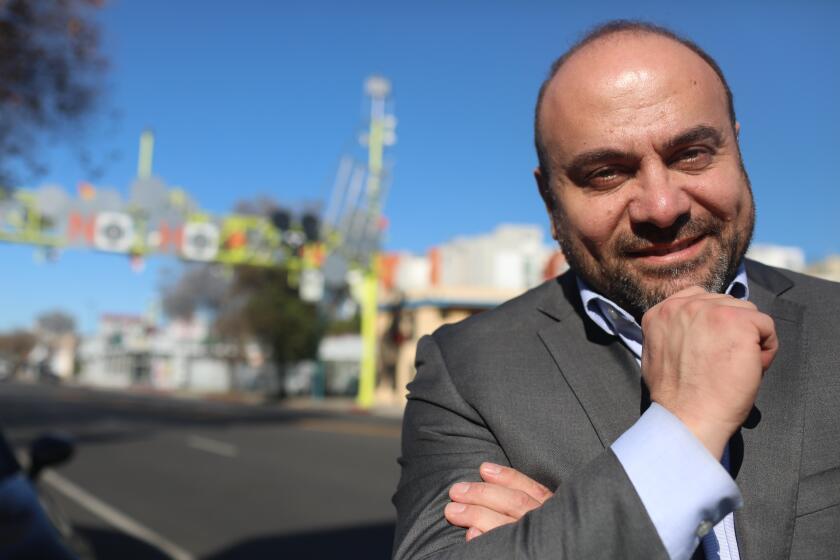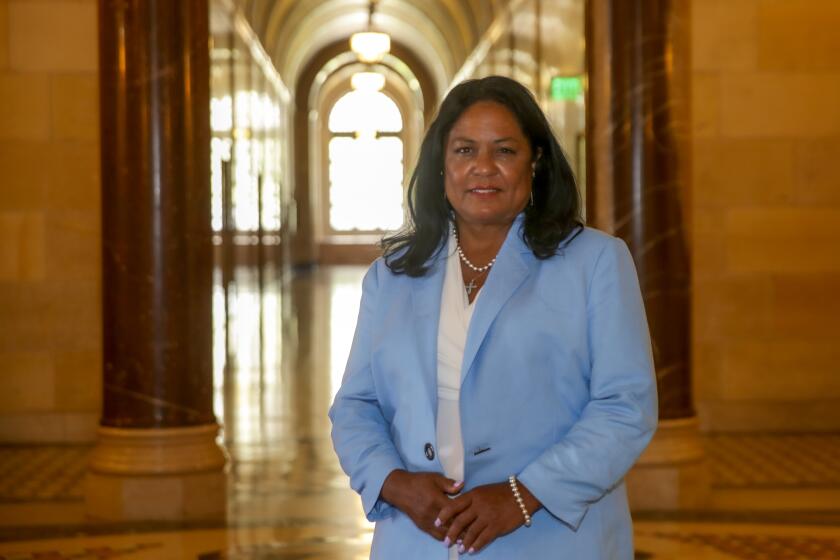Editorial: L.A. still has work to do on pension reform
Los Angeles’ elected leaders have frequently praised themselves for passing pension reforms. Former Mayor Antonio Villaraigosa repeatedly claimed to have made “the most far-reaching effort in the nation” to rein in employee retirement benefits. And Mayor Eric Garcetti said this year that L.A. had “done the most pension reform in the country of any big city.”
But even after persuading employee unions to accept these vital changes, the city continues — and will continue for several more years — to spend 20% of its budget on workers’ retirement benefits, according to a Times analysis. That’s one out of every five dollars in the city’s general fund, which leaves less money for basic services like sidewalk repairs and park maintenance. It also means fewer dollars are available for ambitious projects, like the river restoration and permanent supportive housing for the homeless, unless the city raises taxes.
It’s clear that the work of pension reform is not done. Los Angeles, like so many cities, counties and states across the nation, spent years making overly generous commitments to public employees that now cost far more than officials ever expected. But shrinking the pension deficit is no easy job. Courts have ruled that workers’ pension benefits cannot be reduced once they’ve started the job, so employers have mainly sought to save money in the future by reducing benefits for new hires. (The California Supreme Court is considering taking a case that could change that doctrine.)
To curtail costs now, city leaders have fewer and more unpopular options, including holding down wages (since pension costs are based on salaries), and shrinking the workforce by outsourcing jobs. But that means saying “no” to the city employee unions that often bankroll local political campaigns.
Garcetti and council members also have to push for more transparent and realistic assumptions about the pension funds’ finances. City officials estimated the city is short $8.9 billion on what is owed to its pension systems. Independent analysts estimate the shortfall is at least $20 billion when using more conservative assumptions about the funds’ investment returns.
Adopting more conservative projections would cost taxpayers in the short term, as the city would have to pay more each year to compensate for the cut in anticipated earnings. Yet in the long term city leaders need a more realistic accounting of what is owed so that future decisions on salaries and pension benefits aren’t based on projections that don’t match reality.
Follow the Opinion section on Twitter @latimesopinion and Facebook
More to Read
A cure for the common opinion
Get thought-provoking perspectives with our weekly newsletter.
You may occasionally receive promotional content from the Los Angeles Times.










